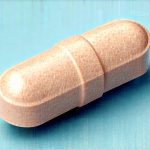Diarrhea is an incredibly common gastrointestinal issue, often fleeting and easily managed. However, when it consistently appears linked to supplement intake – specifically iron or vitamin C – understanding the ‘why’ becomes crucial. Many individuals take these supplements for legitimate health reasons, aiming to address deficiencies or bolster overall wellbeing. The discomfort of diarrhea can quickly negate those benefits, leading to frustration and potentially discontinuation of necessary supplementation. It’s important to recognize that experiencing diarrhea doesn’t automatically mean supplements are harmful; it often signals a need to adjust dosage, form, timing, or even consider underlying sensitivities.
The digestive system is remarkably sensitive, reacting to various stimuli, including the chemical composition of supplements. Iron and vitamin C, while essential nutrients, can both disrupt this delicate balance in certain individuals. The mechanisms behind supplement-induced diarrhea aren’t always straightforward; they often depend on the specific form of the nutrient, individual tolerance levels, existing gut health, and how the supplement interacts with other dietary factors. This article will delve into the specifics of how iron and vitamin C supplements can cause diarrhea, exploring preventative measures and offering guidance for navigating these issues. It’s vital to remember that this information is for general knowledge and should not replace professional medical advice.
Iron Supplement Diarrhea
Iron deficiency anemia is a widespread concern, particularly among women of childbearing age, pregnant individuals, and those with dietary restrictions. Consequently, iron supplements are frequently prescribed or self-administered. However, gastrointestinal side effects, including diarrhea, constipation, nausea, and abdominal cramping, are among the most common complaints associated with iron supplementation. This is largely due to the way our bodies process different forms of iron. Ferrous sulfate, a commonly used form in over-the-counter supplements, is known for its higher absorption rate but also carries a greater risk of GI distress compared to other options like ferrous gluconate or ferrous fumarate.
The mechanism behind this diarrhea isn’t fully understood, but several factors are believed to play a role. Unabsorbed iron in the gut can irritate the intestinal lining, increasing motility and leading to looser stools. This irritation triggers inflammation, further exacerbating the symptoms. Another contributing factor is osmotic diarrhea – when unabsorbed substances draw water into the intestine, resulting in increased stool volume. Iron supplementation can also alter the gut microbiome, impacting digestion and potentially fostering an environment conducive to diarrhea. The amount of iron taken at one time significantly influences the likelihood of side effects; higher doses are more likely to cause discomfort than smaller, split doses.
Furthermore, individuals with pre-existing gastrointestinal conditions like Irritable Bowel Syndrome (IBS) or Inflammatory Bowel Disease (IBD) may be particularly susceptible to diarrhea from iron supplements. Their digestive systems are already more sensitive and reactive, making them less tolerant of the irritant effects of unabsorbed iron. It’s critical for these individuals to discuss supplementation with a healthcare professional before starting any iron regimen. Often, alternative formulations or strategies can be employed to minimize side effects while still addressing the underlying deficiency. If you have concerns about IBS symptoms, exploring a low-fiber diet might prove helpful.
Minimizing Iron-Related Diarrhea
Successfully managing diarrhea caused by iron supplements often requires a multi-pronged approach focused on minimizing irritation and optimizing absorption. Here are some strategies:
- Choose a different iron form: Consider switching from ferrous sulfate to ferrous gluconate or ferrous fumarate, which generally cause less GI distress. Liposomal iron is another option gaining popularity due to its potentially improved absorption and reduced side effects.
- Split the dosage: Instead of taking one large dose daily, divide it into smaller doses throughout the day. This reduces the amount of unabsorbed iron in the gut at any given time.
- Take with food (but avoid certain combinations): While taking iron with food can sometimes reduce nausea, it also inhibits absorption. If you must take it with food, avoid combining it with calcium-rich foods, coffee, tea, or dairy products, as these can further interfere with iron uptake. Vitamin C enhances iron absorption; however, excessive amounts might worsen diarrhea in some individuals.
- Stay hydrated: Diarrhea leads to fluid loss, so maintaining adequate hydration is crucial. Drink plenty of water throughout the day.
- Consider slow-release formulations: Extended-release or slow-release iron supplements release the iron gradually over time, potentially reducing the burden on the digestive system.
Gut Health and Iron Absorption
A healthy gut microbiome plays a vital role in overall digestion and nutrient absorption, including iron. Disruptions to this microbial balance – caused by factors like antibiotics, diet, or stress – can exacerbate diarrhea from iron supplements. Probiotic supplementation may help restore a healthier gut environment, potentially improving iron tolerance. However, the specific strains of probiotics that are most beneficial for iron absorption vary, and it’s best to consult with a healthcare professional for personalized recommendations. Understanding when to test gut health can provide valuable insight into your digestive system’s needs.
Additionally, conditions like Small Intestinal Bacterial Overgrowth (SIBO) can interfere with iron absorption and contribute to diarrhea. SIBO occurs when there’s an excessive amount of bacteria in the small intestine, leading to malabsorption and inflammation. If you suspect SIBO, testing and treatment are essential before continuing iron supplementation.
When to Seek Medical Attention
While mild diarrhea from iron supplements can often be managed with the strategies above, certain situations warrant medical attention:
- Severe or persistent diarrhea: Diarrhea lasting more than a few days, accompanied by severe abdominal pain, fever, or blood in the stool, requires immediate medical evaluation.
- Signs of dehydration: Symptoms like dizziness, lightheadedness, extreme thirst, and decreased urination indicate dehydration and necessitate prompt medical care.
- Worsening anemia symptoms: If your anemia symptoms (fatigue, weakness, shortness of breath) are worsening despite taking iron supplements, it’s important to consult with a healthcare professional to rule out other underlying causes or adjust your treatment plan. Don’t self-treat severe symptoms.
Vitamin C and Diarrhea
Vitamin C, also known as ascorbic acid, is an essential nutrient vital for immune function, collagen synthesis, and antioxidant protection. It’s often taken in supplemental form to prevent deficiencies or boost immunity, particularly during cold and flu season. However, high doses of vitamin C can sometimes lead to diarrhea, especially when exceeding the recommended daily allowance. This effect stems from its osmotic properties and potential impact on gut motility.
Similar to iron, the form of vitamin C plays a role in its tolerability. Ascorbic acid itself is more likely to cause digestive upset than buffered forms like sodium ascorbate or calcium ascorbate, which are gentler on the stomach. The body efficiently absorbs Vitamin C, but when taken in large quantities, the unabsorbed portion draws water into the intestinal lumen, creating a laxative effect and resulting in diarrhea. This osmotic effect is more pronounced with higher doses of ascorbic acid.
Moreover, vitamin C can increase gut motility – the speed at which food moves through the digestive tract. While this can be beneficial for some individuals struggling with constipation, it can lead to diarrhea in others, particularly those already prone to rapid intestinal transit. Individuals with sensitive stomachs or pre-existing gastrointestinal conditions are more vulnerable to experiencing these side effects.
Managing Vitamin C-Related Diarrhea
Preventing and managing vitamin C-induced diarrhea involves careful consideration of dosage, form, and timing:
- Lower the dose: Reduce your daily vitamin C intake to below the tolerable upper limit (2000mg for adults). Start with a lower dose and gradually increase it only if needed.
- Choose a buffered form: Opt for sodium ascorbate or calcium ascorbate instead of ascorbic acid, as these are less likely to cause digestive upset.
- Take with food: Taking vitamin C with meals can slow down absorption and reduce the osmotic effect, minimizing diarrhea risk.
- Divide the dosage: Split your daily dose into smaller amounts taken throughout the day.
- Evaluate other sources: Consider how much Vitamin C you already get from dietary sources (fruits and vegetables) before supplementing.
The Role of Gut Microbiota
The gut microbiome also influences vitamin C’s impact on digestive health. Certain bacteria in the gut can metabolize vitamin C, potentially reducing its osmotic effect. However, an imbalanced gut microbiome may be less efficient at processing vitamin C, increasing the likelihood of diarrhea. Maintaining a healthy gut flora through dietary changes (probiotic-rich foods, fiber) and/or probiotic supplementation can help mitigate these effects.
Recognizing When to Consult a Healthcare Professional
Similar to iron supplements, certain scenarios necessitate medical attention if experiencing diarrhea related to vitamin C:
- Persistent or severe diarrhea: Diarrhea lasting more than a few days, accompanied by intense abdominal pain, fever, or blood in the stool, requires immediate medical evaluation.
- Signs of dehydration: Seek medical care if you experience dizziness, lightheadedness, extreme thirst, or decreased urination.
- Interactions with medication: Vitamin C can interact with certain medications (e.g., chemotherapy drugs), potentially affecting their efficacy or increasing side effects; consult a healthcare professional if you’re taking any medications and experiencing diarrhea alongside vitamin C supplementation.
Ultimately, the key to navigating supplement-induced diarrhea lies in understanding your body’s individual response. Experimenting with different forms, dosages, and timing strategies—while paying close attention to gut health—can help minimize discomfort and maximize the benefits of essential nutrients like iron and vitamin C. Remember, professional medical advice is paramount when dealing with persistent or severe gastrointestinal issues. If you experience consistent digestive upset alongside supplements, exploring food sensitivities might be helpful. Additionally, understanding recognizing and managing bloating associated with indigestion can offer further insights into your gut’s response to supplementation. For those experiencing persistent symptoms that don’t seem related to supplements specifically, digestive diagnostics could provide valuable information. It is also important to be aware of the connection between GERD and persistent phlegm. If your diarrhea seems linked to specific foods, you might benefit from investigating if you can heal food sensitivities. Those with IBS should also consider a low-fiber diet to manage symptoms, and be aware of drinks to avoid. Finally, remember that gut health testing can provide a comprehensive understanding of your digestive system’s function.


















